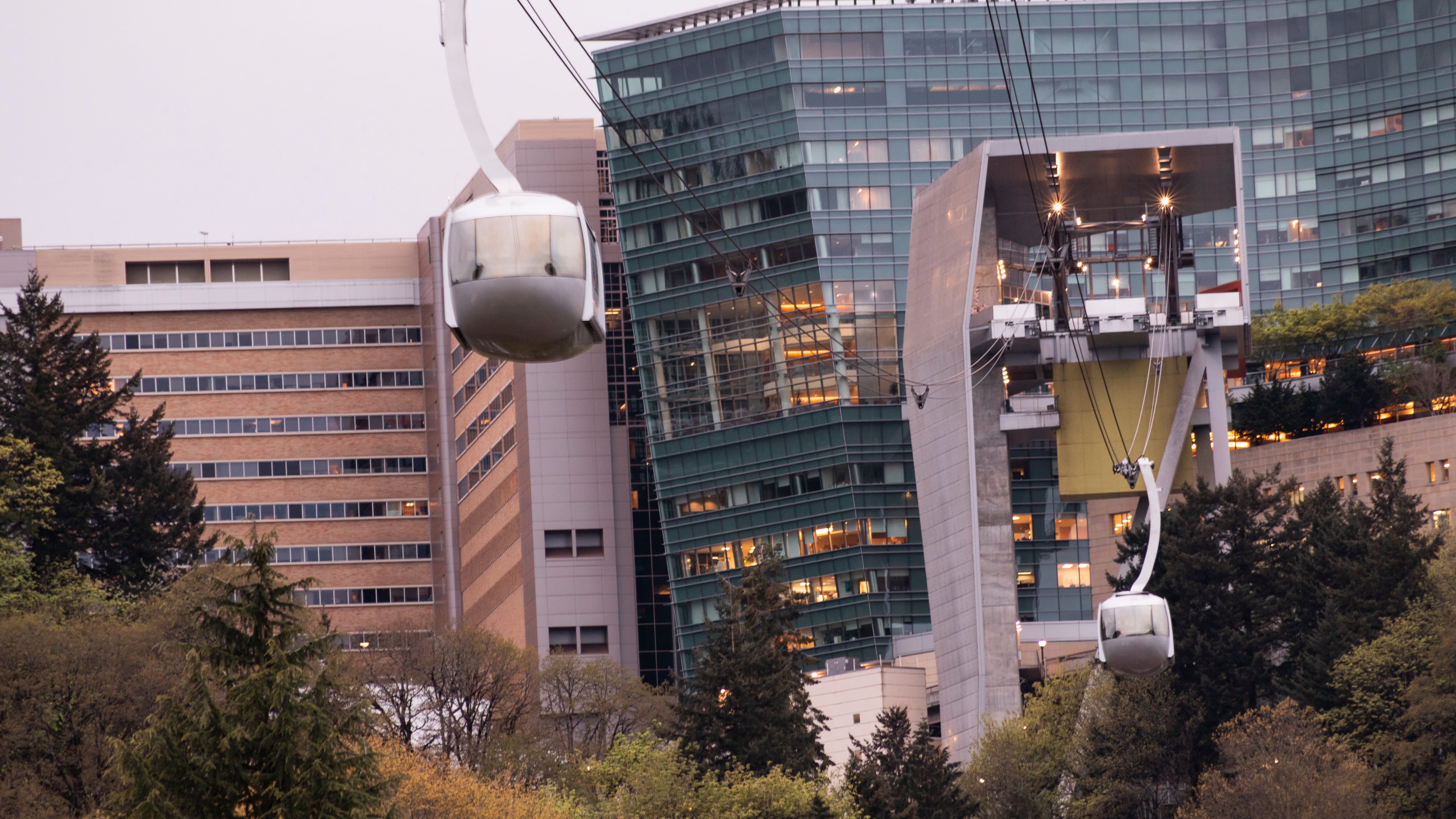Paul Dawson may have the crummiest job in Oregon.
An inmate at the Oregon State Penitentiary in Salem, Dawson, 33, works five days a week at the prison laundry with 180 other co-workers. He makes about 60 cents an hour.
The warehouse takes in about 40,000 pounds of laundry each day. The source of those 20 tons of dirty sheets, towels and robes? Thirty-three hospitals and clinics across the state, including Legacy Health and Oregon Health & Science University.
Those medical facilities are now at the center of treating COVID-19 patients. And they clean their laundry with prison labor.
"It comes in just as it left the hospital. There's no cleaning process that happens before it gets to us," Dawson tells WW. "We know it only takes one person to get the whole [prison] infected. We're just stacked on top of each other. It seems like one of the worst places to be in the country [right now]. Working in the laundry gives me more anxiety about that."
Laundry facilities in the states' prisons are run by Oregon Corrections Enterprises, which is a highly unusual private business operating inside the state Department of Corrections. Because it doesn't receive public funding, company spokeswoman Jennifer Starbuck says, it is not legally required to disclose who its three-dozen customers are. (Starbuck says all its clients are health care facilities.) Nor does it need to disclose how much it charges for its services, or what its profits are.
Throughout the pandemic, Oregon's prison laundries have continued to accept soiled linens from hospitals across the state with few changes to working conditions.
Workers at these laundry facilities, mostly inmates at Two Rivers Correctional Institution in Umatilla and the Oregon State Penitentiary, get paid between $90 and $100 a month for working full time. This breaks down to roughly 60 cents an hour.
"At this time, the [U.S. Centers for Disease Control and Prevention] is not recommending any changes to the current processing standards for the commercial laundry industry," Starbuck said in a statement to WW, adding that there is a higher risk of exposure from direct person-to-person contact than through contaminated objects. Starbuck added that the corrections department has increased its frequency of cleaning laundry facilities, and that one major hospital sent an infectious disease control team to inspect prison laundries this month: "No major concerns were identified, only minor adjustments."
A spokeswoman for Oregon Health & Science University tells WW the hospital has been using Oregon Corrections Enterprises' laundry service since 1995, and that the two entities work together "through processes designed to protect patients, employees and laundry workers."
Legacy spokeswoman Kristin Whitney tells WW its hospital in Silverton, Ore., has used the prison laundry service for 16 years. Providence spokeswoman Kathleen Obenland says Providence St. Mary's in Walla Walla, Wash., has sent its laundry to Two Rivers since September 2015. "For questions about the safety of prisoners at Two Rivers and the precautions being taken in the laundry there, please contact [them] directly," Obenland said.
Concerns about the effects of COVID-19 on inmates have received widespread press in Oregon over the past month. But hospital use of prison labor has received less attention.
Because of Measure 17, passed by voters in 1994, inmates in Oregon must keep working full time. Some of that work keeps the prisons running: mopping floors and cooking meals. But other work is contracted out through Oregon Corrections Enterprises to sell products and services to outside entities. Inmates can request to switch jobs, but the process is often lengthy and convoluted, lawyers tell WW.
"You have people being paid pennies on the dollar," says Juan Chavez, project director of the Oregon Justice Rights Center, "and a state constitutional mandate that they do that work. The consequences of not working results in disciplinary punishment."
Dan White, an inmate at Two Rivers Correctional Facility, says he's frightened by the work.
"I can't quit. Measure 17 means I have to be compliant with worker programs," says White, 38. "I'm worried that I won't make it back out to my family. I wasn't sent to die in here."
In the state penitentiary's laundry room, an assembly line of men in light green and blue gowns place the soiled linens—sheets, scrubs, surgical gowns, towels—into four massive washing machines, each about 10 feet tall and 4 feet wide.
Workers touching soiled laundry wear masks and gowns to do the laundry, Dawson says, which is the same personal protective equipment they wore prior to the pandemic. White, who folds clean laundry, says he doesn't get any PPE to do his job.
"We're standing right next to the soil room, so all that air blows on top of you," White says. "They don't have us socially distanced. We're just crammed in a little room. There's like 80 of us. I look over, and there's four dudes from the soil room wearing the scrubs. Like, really, dude?"
In response to an inquiry from WW, the governor's office said it has instructed the ODOC director to ensure facilities are equipped with PPE. "Adults in custody who work in the OCE laundry are providing a vital service at a time when the demand from hospitals is high," Brown spokeswoman Liz Merah says. "Their work—which DOC is ensuring continues safely—is helping to keep our frontline health care workers safe during this critical time."
White, who makes $100 a month doing laundry, says he and his co-workers feel they're being exploited to help hospitals function.
"We're providing essential services to these workers during this critical time. I'm facing the potential of a deadly virus getting into my environment and me dying in prison," White says. "Hell, it would even be nice to have an urn of coffee down there."
